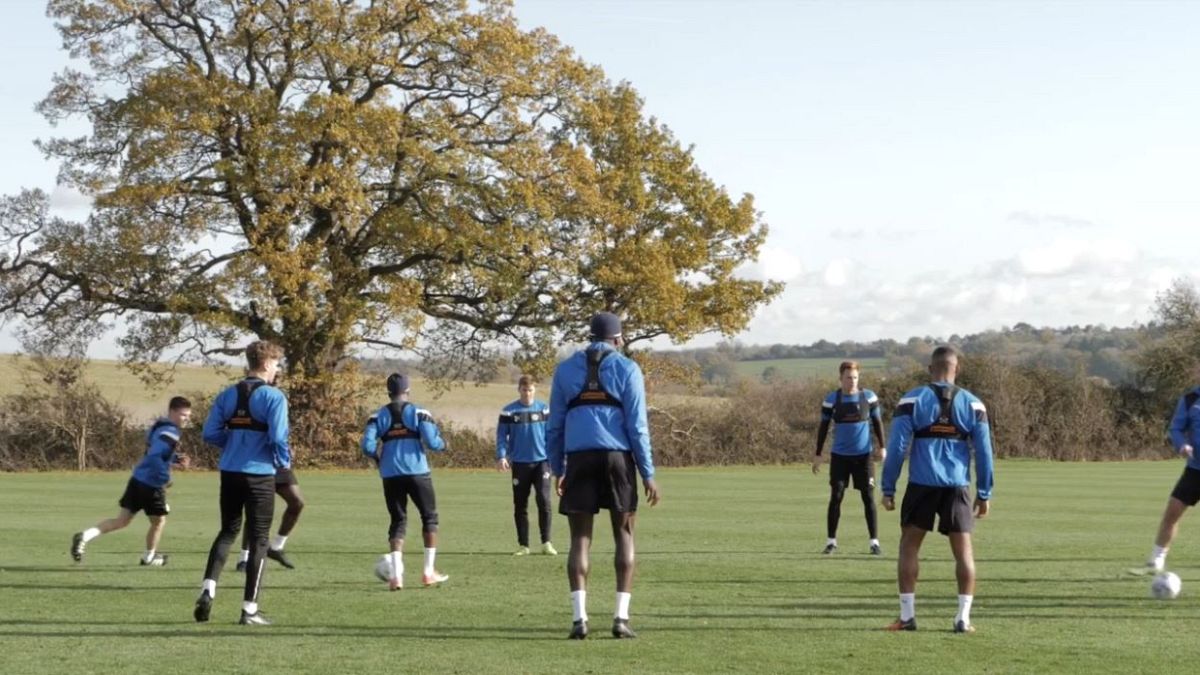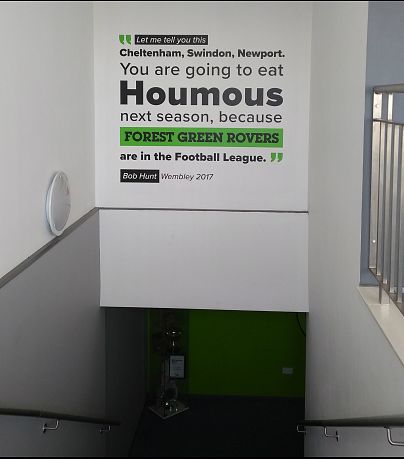Hailed by FIFA as the "world’s greenest football club", the Forest Green Rovers' vegan diets are credited with boosting the team into League Two.
By Clara Wiggins
Forest Green Rovers were already renowned in the UK as giant-killers, the minnows who took on some of the much larger clubs and won. But now the club is gaining a reputation for a completely different reason — as the first vegan club on the planet.
It started as a rescue mission when the Gloucestershire club owners approached millionaire environmentalist Dale Vince for sponsorship back in 2010. After looking into the troubled team’s finances, Vince, who owns local green energy company Ecotricity, realised the problems went much deeper than the owners may have realised themselves. In the end, Vince said, “Our choice was to walk away or get completely immersed in it and take responsibility for the whole club."
“We decided to do just that.”
And so began a most unlikely partnership between football and one of the latest trends to hit the British food scene — veganism. Nowadays, anyone looking for a meat pie on match day will be disappointed. Or at least, they might be — until they taste the stadium’s alternative and top-seller: the Quorn-based Q Pie.
For Vince, turning his new club vegan wasn’t really something he needed to think too hard about. His entire Ecotricity empire — which includes supplying green energy, setting up electric car charging points, and a green mobile phone service — is vegan. So when Vince realised red meat was on the menu for his players, he quickly saw an opportunity — to introduce a whole new audience to his way of life.
“When I saw beef lasagne being served to the players, right then I had a chat with the chef and the manager and said we can’t be doing this,” Vince told Euronews from Ecotricity’s head office, in the centre of the Gloucestershire town of Stroud.
“They agreed and that day we took red meat off the menu.” This was portrayed in the media as a “red meat ban” but Vince insists fans were always permitted to bring their own food to the stadium. The fact that apparently very few did may be a testament to the food on offer.
“We took white meat off the menu, then fish, and two seasons ago we went the final stretch and took off dairy,” said Vince
“In the time since we’ve done that, food sales have quadrupled.
“What we focus on is great food. It’s handmade by a local chef, using local ingredients where we can, and we put a lot of love into the food. You don’t normally find that with football."
No more leather boots and balls
The club isn’t just renowned for being vegan — it also takes Ecotricity’s environmental policies to heart. The stadium used solar panels, bans plastic (paper straws can be found on the bar in the executive suite), and has electric car charging points out front.
But it is certainly the vegan aspect that has grabbed the world’s attention.
"It’s garnered us enormous coverage,” said Vince. “It gives us a platform for what we stand for."
Apart from the food, what else does it mean to be a vegan club? It turns out that balls are no longer made of leather, nor are the football boots. But animal products can be found in the strangest of places, including beer and wine. All of the beverages on sale are vegan, with many of them being locally made. The club also uses no manure at all on its pitch – as an animal product, even a relatively cruelty-free one, it is banned. Instead, organic and plant-based fertilizers are used.
Club promoted after going vegan
Although the team had a shaky start to the season, Vince was quick to point out that they had already turned vegan at the time of their promotion to the Football League last year. The players are fed vegan food when they train – five meals a week – and given cooking lessons so that they can try the recipes cooked by head chef Em Franklin, who was discovered working at a local café, at home.
Fans go vegan
Chris Latham, a 30-year-old fan, started by becoming a vegetarian but then one day, standing in a food queue in the stadium during half time, made a decision to go the whole way.
“I was reading one of the signs they put up about the impact of the meat industry on the environment, and on animal culture, and it just resonated with a lot of what I believe,” he said.
“So I thought I should give it a try. I’ve never looked back — it’s the best decision I’ve ever made”. He said he enjoyed most of the food but that his favourite was the fajitas.
Latham surveyed other fans at the club and found that others appreciated the food as well — almost everyone he spoke to had embraced veganism to some extent, from introducing regular meat-free Mondays, to going full-on vegan like himself. Even away fans told him the food on offer at Forest Green Rovers was the best at any stadium in the country.
Vince’s policy of bringing his vegan and environmental messages to the masses is taking hold. He recently attended a climate change summit at the UN where he talked about how to bring the green message to people who love sport. While veganism is growing in popularity, there is still a huge swathe of the population who simply never had the chance — or willingness — to give the dishes a go.
There is no doubt that Forest Green Rover’s vegan polices are making an impact, but Vince’s plans for the club haven’t stopped there. In April the Rovers are hoping to secure planning permission for an ambitious all-wood stadium which, he says, would have the lowest carbon footprint of any stadium in the world.
With the stadium model displayed proudly in the corner of his office, Vince talks of how the new grounds will inspire, and attract, spectators from around the world.
“It’s about showing what is possible,” he said. “And we’ve got a reach far beyond a typical league two team to be able to do that."
“FIFA call us the ‘greenest football club in the world'"
“We love that."




